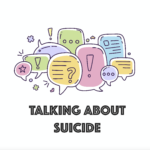
In her debut blog, Charlotte Huggett summarises a recent online survey which explored views on the language we should use to discuss suicide. The study concludes that the most acceptable phrases are currently: “attempted suicide”, “took their own life”, “died by suicide” and “ended their life”.
[read the full story...]







